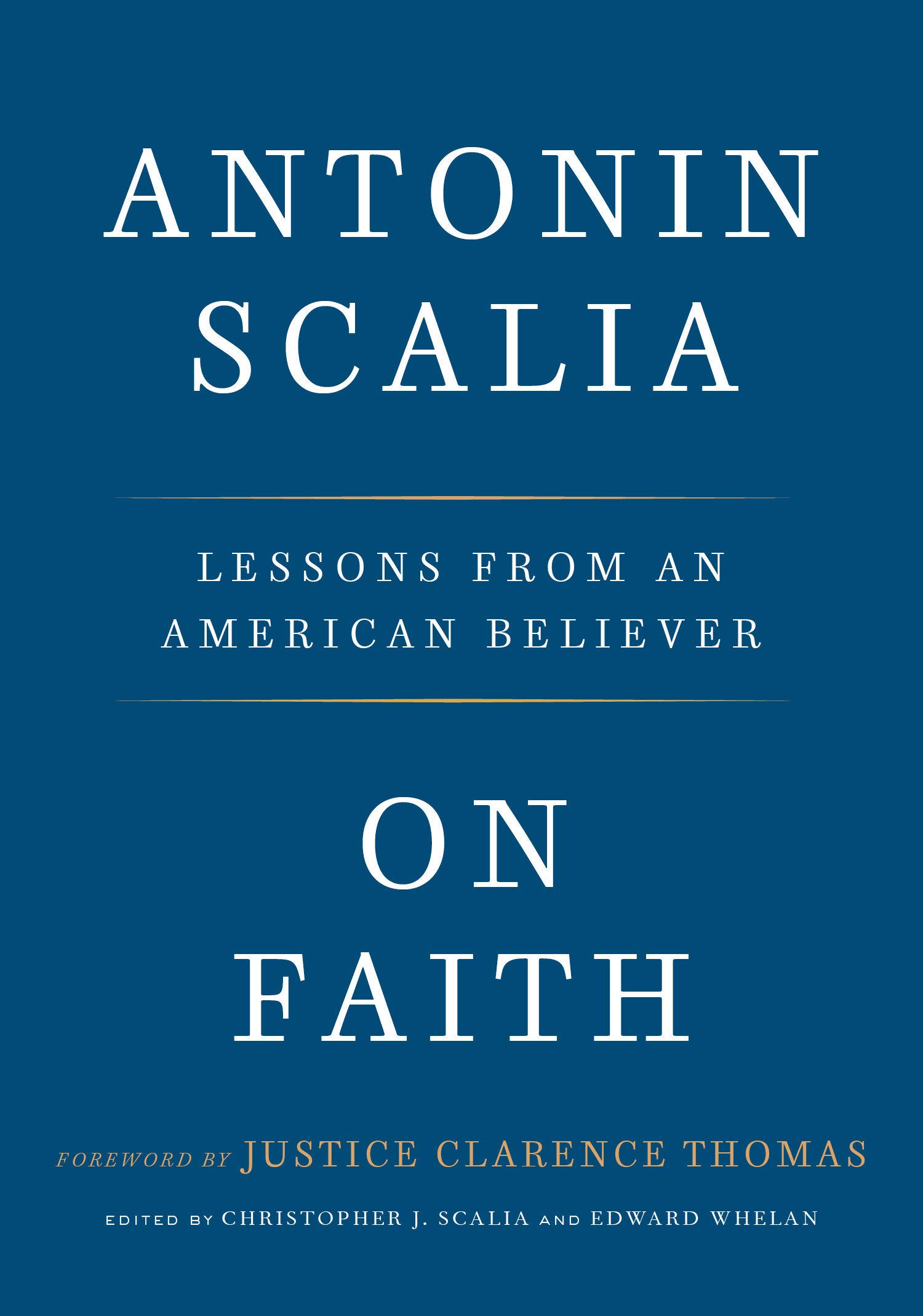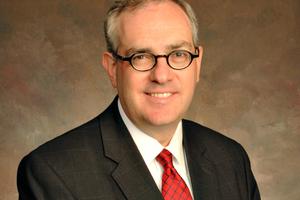Words of Faith From Antonin Scalia
BOOK PICK: On Faith

ON FAITH
Lessons From an American Believer
By Antonin Scalia; edited by Christopher J. Scalia and Edward Whelan
Crown Forum, 2019
256 pages, $22
To order: ewtnrc.com or (800) 854-6316
Father Paul Scalia confesses that he was stunned by his dad’s brusque concession — not because his father was praying the Rosary, but because he had openly spoken of his prayer life, which was unusual.
“That’s great, Dad,” replied Father Scalia.
“Yeah?” Justice Scalia shot back. “Do you think it does any damn good?”
Paul told his dad that with that kind of attitude, well, probably not. His dad laughed, but he had nonetheless allowed his son a brief glimpse into his faith.
“His point was made,” says Paul today, “and so was mine.”
That anecdote opens the book On Faith: Lessons From an American Believer, by Antonin Scalia. It’s a collection of speeches, writings and excerpts from the Supreme Court opinions of Justice Scalia, as well as reflections by family, friends, colleagues and law clerks, including a foreword by fellow Justice Clarence Thomas.
The book was compiled by Christopher Scalia, the eighth of Scalia’s nine children, and Edward Whelan, the president of the Washington-based Ethics and Public Policy Center and a former Scalia clerk.
The opening anecdote from Father Scalia is illustrative. We see in these pages a Supreme Court justice who recited the Rosary, prayed, read the Catechism and the Bible, treasured the Church’s teachings and ceremonies and integration of faith and reason, trusted in the sacraments, attended the traditional Latin Mass (carrying an old Latin hand missal he bought in 1960), didn’t miss holy days, ardently believed in the real presence of Christ in the Eucharist, denied himself Communion if he hadn’t been to confession and, every Sunday, had driven his family (in the words of daughter Mary Clare) “however far was necessary to find what Dad considered an appropriate liturgy.”
Above all, Antonin Scalia quietly but steadily witnessed to the faith, even inadvertently making some converts among his clerks. The faith was clearly an integral part of who he was. And as his son Paul notes, though Justice Scalia rarely spoke about his personal faith, he did often speak publicly about the Catholic faith and the role of religion in American life.

This book has many gems from Scalia’s past: a 1994 address at The Catholic University of America, “Moral Formation: The Character of Catholic Higher Education”; a 1998 speech at Georgetown, “Away From the Noise: Making Retreats,” and still much more — on Catholics and the death penalty, on conscience and the Constitution, on absolute truth, on the Holocaust.
But perhaps the two most interesting pieces of current relevance are a 1989 speech to American Catholics in Rome, “The Two Kingdoms: Christians and State Authority,” and a 1996 address at the Pontifical Gregorian University in Rome, “Politics and the Public Good: The False Allure of Socialism.”
In the 1989 speech, Scalia explained the American notion of church-state separation. He cautioned, “It would be wrong to think, however, that the separation of church and state means that the political views of men and women must remain unaffected and uninformed by their religious beliefs. That would be quite impossible to achieve and is assuredly not part of our political tradition.” He asserted that “state coercion of religious belief is wrong because it suppresses the free will that is precisely the respect in which man is made, as we say, ‘in the image of God.’” He added: “A good government should not, to be sure, impede the religious practices of its people; it ought indeed, as many of the decisions of our Supreme Court have said, accommodate those practices where possible.” He argued that Christians are obligated to obey the laws of “lawful government.”
As for his 1996 address at the Pontifical Gregorian University in Rome, Scalia would be saddened today to know that a false allure of socialism is sweeping much of modern America, including among Christians enticed and duped by socialism’s failed promises to help the poor.
“The issue is not whether there should be provision for the poor,” countered Scalia, “but rather the degree to which that provision should be made through the coercive power of the state. Christ said, after all, that you should give your goods to the poor, not that you should force someone else to give his.”
Scalia was not uncritical of capitalism: “The cardinal sin of capitalism is greed; but the cardinal sin of socialism is power.” He stated that for capitalism to work — that is, to produce a good and stable society — the Christian virtues of honesty, charity and self-denial are essential. Because each person has more freedom of action under capitalism, each person has more opportunity to do evil.
Scalia feared the effect of left-wing socialism upon faith: “I know of no country in which the churches have grown fuller as the governments have moved leftward. The churches of Europe are empty.” He noted that the most religious country in the West by all standards — church attendance, membership and belief in God — is the United States, which is “that bastion of capitalism least diluted by socialism.”
Unfortunately, the United States in the two decades since that speech, and even since Scalia’s death just three years ago, has moved closer toward socialism and toward those churches being emptier.
Such are some of the insights of Antonin Scalia presented in this valuable collection.
Appropriately, the book ends, as it began, with words from Father Scalia. Reprinted is the touching homily from Father Scalia at his father’s funeral. Here again, another brusque but illustrative anecdote: One Saturday evening the father found himself in the son’s confessional line. “Like heck if I’m confessing to you!” the father said to the son-priest, departing quickly. “The feeling was mutual,” said Father Scalia, wryly.
Again, a slightly irreverent Antonin Scalia, but always in fun — and always in faith. Like that Rosary, here he was at confession. He could jostle his priest-son about it, but, nonetheless, he was practicing it.
Paul Kengor is a professor of political science at Grove City College in Grove City,
Pennsylvania. His books include A Pope and a President: John Paul II, Ronald Reagan and the Extraordinary Untold Story of the 20th Century.
- Keywords:
- antonin scalia
- book picks
- paul kengor

















